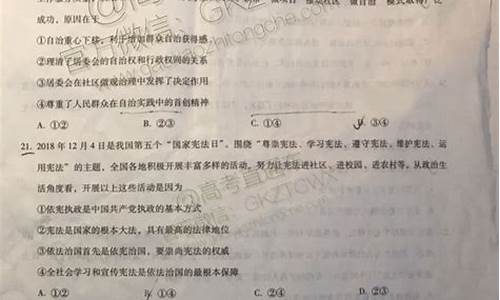您现在的位置是: 首页 > 教育改革 教育改革
2017四川英语高考卷子,2017高考英语四川
tamoadmin 2024-05-18 人已围观
简介2017年高考已经结束了,那么2017年高考总分多少分?各科的总分都是多少?下面是我整理的2017年各省高考总分,希望能给大家带来帮助! 2017年各省高考总分 就全国的形式来讲,大部分地区的总分值还是一样的,如:安徽、北京、福建、甘肃、广东、广西、贵州、河北、河南、黑龙江、湖北、湖南、吉林、江西、辽宁、内蒙、宁夏、青海、山东、山西、陕西、四川、天津、西藏、新疆、云南、重庆

2017年高考已经结束了,那么2017年高考总分多少分?各科的总分都是多少?下面是我整理的2017年各省高考总分,希望能给大家带来帮助!
2017年各省高考总分
就全国的形式来讲,大部分地区的总分值还是一样的,如:安徽、北京、福建、甘肃、广东、广西、贵州、河北、河南、黑龙江、湖北、湖南、吉林、江西、辽宁、内蒙、宁夏、青海、山东、山西、陕西、四川、天津、西藏、新疆、云南、重庆等27个省市还是750分满分。各科的分值详情如下:语文150分,数学150分,英语150分,文综/理综300分。
个别改革地区的分值详情需要大家做详细的了解,比如江苏、上海、浙江和海南这4个地区:
浙江地区的高考总分:
上海和浙江地区2017年采用的是3+3考试模式,即3门必考科目(语文、数学、英语)+选考科目,我们先来看浙江地区的总分:
其中语文、数学和外语三科满分各为150分,其中英语笔试满分120分,英语听力考试满分30分;综合(文/理)满分300分;自选模块满分60分;技术满分100分,由通用技术和信息技术两科目成绩按各占50%的比例合成。
需要特别提醒大家的是浙江的总分根据大家的选择而有所差异,即考生文化成绩总分按报考(含兼报)的不同考试类别分别合成。文理科一类为“3+综合+自选模块”的总分,满分为810分;二类为“3+综合”的总分,满分为750分;三类为“3+技术”的总分,满分为550分。
上海地区的高考总分:
2017年上海高考成绩满分660分,各科的分值详情是这样的哦:语文、数学(文/理)、外语满分均为150分,政治、历史、地理、物理、化学、生物任选3门:每门70分。
江苏地区的高考总分:
江苏同样采用的是必考+选考模式,其中统考科目为语文、数学、外语三门,各科分值设定为:语文160分,数学160分,外语120分,共440分。语文、数学分别另设附加题40分,总分480分。
选测科目各科满分为120分,按考生成绩分布分为A+、A、B+、B、C、D六个等级。
海南地区的高考总分:
2017年海南的总分以900分的满分当之无愧的位据全国首位,语文、数学(文)、数学(理)、英语等科目的满分值均为150分,其中,英语科分听力和笔试两部分,笔试部分满分值为120分,听力部分满分值为30分,听力成绩计入英语科总分。政治、历史、地理、物理、化学、生物等科目的满分值均为100分,
高考英语阅读理解精品训练2017
近几年高考英语阅读主要有猜测词义、理解主旨大意、推理判断、对文章的细节理解、 数据推算等几种题型。为了帮助大家备考高考英语阅读理解题,我分享了一些高考英语阅读理解练习,希望能对大家有所帮助!
阅读理解练习1
Not many years ago, a wealthy and rather strange old man named Johnson lived alone in a village in the south of England. He had made a lot of money in trading with foreign countries. When he was seventy?five, he gave ? 12,000 to the village school to buy land and equipment (设备) for a children?s playground.
As a result of his kindness, many people came to visit him. Among them was a newspaperman. During their talk, Johnson remarked that he was seventy-five and expected to live to be a hundred. The newspaperman asked him how he managed to be healthy at seventy?five. Johnson had a sense of humour (幽默). He liked whisky (威士忌酒) and drank some each day. ?I have an injection (注射) in my neck each evening.?he told the newspaperman, thinking of his evening glass of whisky.
The newspaperman did not understand what Johnson meant. In his newspaper he reported that Johnson was seventy?five and had a daily injection in his neck. Within a week Johnson received thousands of letters from all over Britain, asking him for the secret of his daily injection.
1. Johnson became a rich man through
A. doing business. B. making whisky. C. cheating. D. buying and selling land.
2. The gift of money to the school suggests that Johnson
A. had no children. B. was a strange man.
C. was very fond of children. D. wanted people to know how rich he was.
3. Many people wrote to Johnson to find out
A. what kind of whisky he had. B. how to live longer.
C. how to become wealthy. D. in which part of the neck to have an injection.
4. The newspaperman
A. should have reported what Johnson had told him.
B. shouldn?t have asked Johnson what injection he had.
C. was eager to live a long life.
D. should have found out what Johnson really meant.
5. When Johnson said he had an injection in his neck each evening, he really meant that
A. he liked drinking a glass of whisky in the evening.
B. he needed an injection in the neck.
C. a daily injection in the evening would make him sleep well.
D. there was something wrong with his neck.
阅读理解练习2?I?m very tired from working here,?said Jean to her friend Kate,? I?m on my feet from morning to night. For the first quarter of the day, I clean up the counter (柜台) and set the tables. For the next quarter, I help in the kitchen. For the second half of my workday, I take orders at the counters.?
?Kate, I wish I had your job,?Jean went on. ?For four hours you just sit at the cash register (收款台) taking in money.?
?But I spend two more hours in the kitchen (厨房) than you do,?said Kate. ?It?s tiring to cook over a hot stove. I don?t think you?d really want my job. In fact, I?d like your job.?
1. Both Jean and Kate probably work in a
A. hotel B. library C. lab D. shop
2. How long did they work every day?
A. eight hours B. twelve hours. C. Ten hours D. Nine hours
3. How long did Kate spend in the kitchen?
A. a quarter day. B. A half day. C. One-third day. D. Three-fourths day.
4. From this passage we can see that
A. they are both interested in their work. B. their work is neither tiring nor busy.
C. both of them are tired of their work. D. they?ve decided to give up their work.
5. Give a proper proverb (谚语) to Jean and Kate.
A. It?s never too late to learn.
B. It?s no use crying over spilt milk.
C. The grass is always greener on the other side.
D. One swallow(燕子) does not make a summer.
阅读理解练习3In 1985 a French television company sent its reporters to the Paris Metro. They took cameras to see what passengers would do if they saw someone attached on the platform or in the trains. They acted out incidents. The incidents looked real but they were all done with the help of actors. However, very few people tried to help, and most passengers pretended not to notice. in one incident, a foreigner was attacked by three men. The attack was on a train which was quite full, and although one man tried to get the passengers to help, they all refused. It seems that such behaviour(行为) is not unusual, but the question is why? Is it a problem of big cities, or would the same thing happen anywhere? To discuss these questions, we have in the studio(演播室) Professor Wilson, who is an expert on the subject?
1. Who did the experiment?
A. A French television company. B. The Paris Metro.
C. The City Government of Paris. D. Professor Wilson.
2. What did the experiment try to find out?
A. How a foreigner was attacked on the train.
B. How passengers helped each other on the platform.
C. Passengers? reactions towards incidents.
D. Actors? performances during incidents.
3. What was the finding of the experiment?
A. Passengers helped a lot during incidents.
B. Very few foreigners were on the train.
C. Very few passengers tried to help during incidents.
D. Some people were good at acting on the train.
4. Who do the underlined words one man refer to?
A. One of the three men who attacked a foreigner.
B. One of the actors who took part in the experiment.
C. One of the passengers who were on the train.
D. One of the reporters who were sent to the Paris Metro.
参考答案:
1A 2 C 3 D 4 D 5 A
1A 2 A 3 B 4 C 5 C
1D 2 C 3 C 4 B
;








